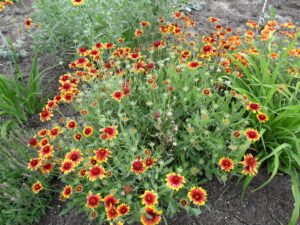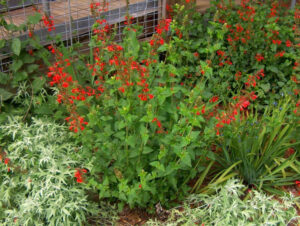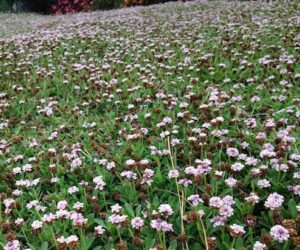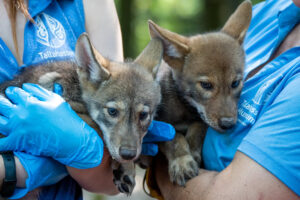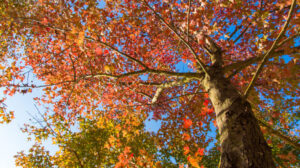 Fall is fully upon us and that means leaves! The Florida Panhandle has some gorgeous leaf displays: vibrant red dogwoods, orange and yellow cypress stands, sweetgums displaying an array of colors from red to purple and more, red maples showing off their common namesake, golden yellows of sycamores, and the brilliant shades of our various native oak species.
Fall is fully upon us and that means leaves! The Florida Panhandle has some gorgeous leaf displays: vibrant red dogwoods, orange and yellow cypress stands, sweetgums displaying an array of colors from red to purple and more, red maples showing off their common namesake, golden yellows of sycamores, and the brilliant shades of our various native oak species.
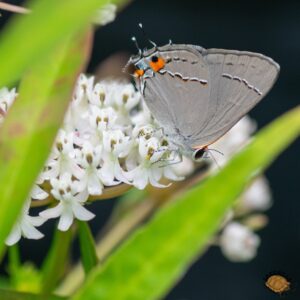
Once you enjoy the gorgeous colors on the trees, you might be tempted to clean up the leaves that then fall to the ground. Yet research suggests that leaving the leaves is better not only for you but for the planet. Here is only SOME of the benefits of leaving your leaves be:
- Leaf litter is a natural mulch and fertilizer. When left to decay naturally, it improves soil health, helps retain moisture, keeps plants warm during winter, and reduces the need to top off any store-bought mulch areas that already exist in your yard.
- You save yourself the time, energy, and potential costs associated with getting leaves removed.
- Leaf litter helps boost the ecological health of your yard! Many wonderful wildlife live or lay eggs in leaf litter including butterflies, fireflies, and more.
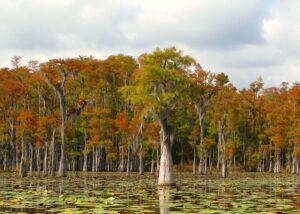
A few other tips that might help you out:
- Don’t mow! When you mow leaves, your chopping up all the butterfly larvae and other awesome pollinators that are living in the leaves.
- Moving leaves it okay! Rake them gently or gather by hand (don’t blow!) and transplant elsewhere.
- Do keep hard surfaces clear! If you have sidewalks, walkways, or other hard surfaces that anyone might walk on, be sure to relocate those leaves for everyone’s safety.
Rather than spend your precious and limited downtime raking leaves or – even worse – your hard earned money paying someone else to, enjoy a nice hot beverage and let the leaves be. Your wallet and the world will thank you!
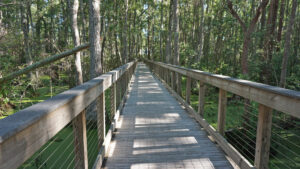
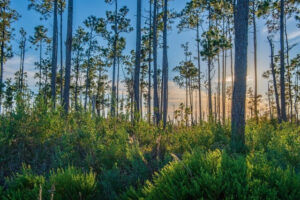
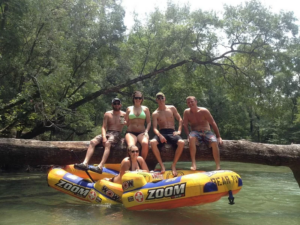 Looking for something fun to do this coming weekend? Consider visiting the Bear Paw Adventures service! They offer kayak, canoe, and tube rentals for individuals, pairs, and groups. Come out for a relaxing, gorgeous trip down Spring Creek and the Chipola River. Learn more or book your trip today on their
Looking for something fun to do this coming weekend? Consider visiting the Bear Paw Adventures service! They offer kayak, canoe, and tube rentals for individuals, pairs, and groups. Come out for a relaxing, gorgeous trip down Spring Creek and the Chipola River. Learn more or book your trip today on their 
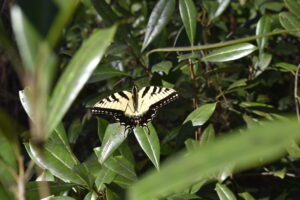
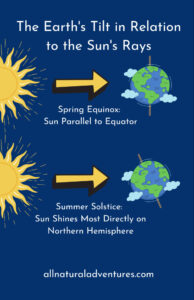
 Come out to Inlet Beach on 30A to help celebrate the monarch butterflies’ 2,000-mile fall migration from North America to Central America! The Flutterby Arts Festival is Walton County’s annual art, craft, and science fest all about butterflies. This is a family-friendly event that includes live entertainment, hands-on youth art activities, self-guided tours of the Watersound Monarch Art Trail, a butterfly parade, and more. The event runs on November 10th from 9am to 4pm. Learn more by visiting the
Come out to Inlet Beach on 30A to help celebrate the monarch butterflies’ 2,000-mile fall migration from North America to Central America! The Flutterby Arts Festival is Walton County’s annual art, craft, and science fest all about butterflies. This is a family-friendly event that includes live entertainment, hands-on youth art activities, self-guided tours of the Watersound Monarch Art Trail, a butterfly parade, and more. The event runs on November 10th from 9am to 4pm. Learn more by visiting the 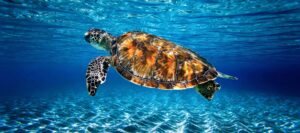 The director of the Florida Coastal Conservancy will lead a special presentation that covers topics like why sea turtles cry salt and why turtle nests are protected on Florida beaches. Guests will also get to see turtle shells and skulls; depending on the specimens brought and the number of guests, they may even be allowed to touch. While the event is free to attend, they do ask guests to register in advance. To learn more or register for the All About Sea Turtles talk, click
The director of the Florida Coastal Conservancy will lead a special presentation that covers topics like why sea turtles cry salt and why turtle nests are protected on Florida beaches. Guests will also get to see turtle shells and skulls; depending on the specimens brought and the number of guests, they may even be allowed to touch. While the event is free to attend, they do ask guests to register in advance. To learn more or register for the All About Sea Turtles talk, click 